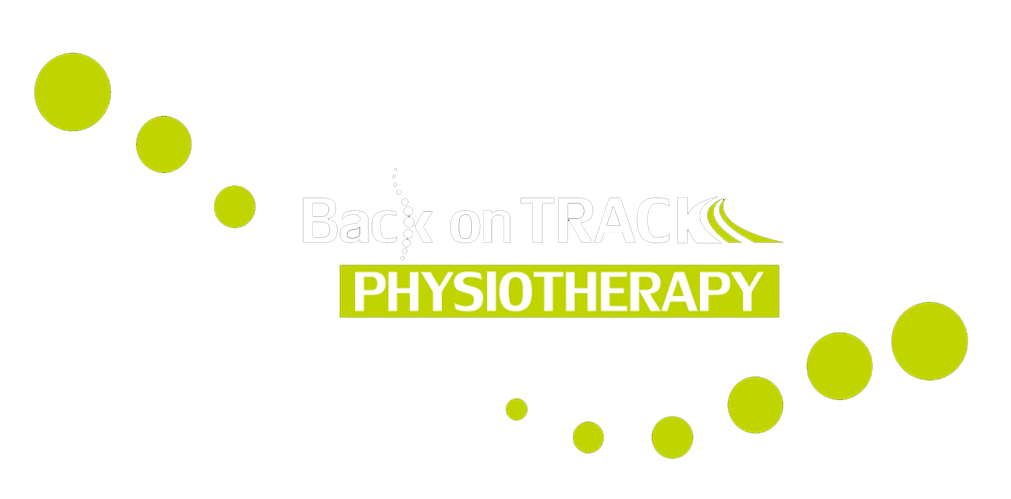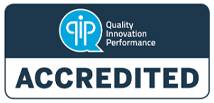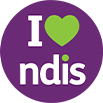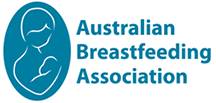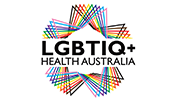Frequently Asked Questions
The Vitality Passport Program is oriented to seniors over 65 years of age, or over 55 years of age for First Nations people. The program is a proactive program to give you the tools to Age well. The program combines Exercise, Diet, Cognition, and Mental health and Wellness. As such some participants will respond to one or more, or all offered activities.
A referral from your GP or Allied health practitioner is required to access the program. The Vitality program is offered within the region of the Murrumbidgee Primary Health Network click here to view the region https://mphn.org.au/about-us
Our Vitality program is a Multi-disciplinary program, which means it can help through a variety of forms. Many of our participants get help and value from our program through sometimes simple suggestions. This could involve fine tuning or introducing an exercise program, or simple changes to improve your diet, to ensure adequate protein intake.
The Vitality program is a fully funded program, so there's no cost, 100% free. The program is funded by the Murrumbidgee Primary Health Network.
The program is available within the border of the Murrumbidgee Primary Health Network. To express interest in our Program, or find out where our current and future locations are please get in touch.
It is desirable to have a referral from your GP. This helps our clinicians understand your general health and relevant medical history, along with any prescribed medications. Our clinicians can tailor their suggestions to you with a greater understanding of you from a medical background.
Alternatively you can express your interest in the program, and with your consent we can communicate with your GP. Our team also provides your GP with updates throughout the program so your healthcare team can stay informed. To express interest in the Vitality program, click here.
Not at all. Our program is adjunct to your current services, it is not meant to take the place of your current clinicians. Our team works with your existing provider. The main focus and objectives of the Vitality program may differ somewhat in the objectives of your
No, whilst it is desirable to attend all sessions, we understand sometimes things pop up. Our workbook is a resource for you to keep and aligns closely with our group program, so if you miss a group session or two, the content is available to read in your workbook.
Absolutely, our team can offer telehealth appointments if your away for a period of time during the program.
Vitality Guide
Vitality Program - A Journey to a Healthier You
The Vitality Passport is Murrumbidgee Primary Health Network funded program focused on halting and reversing frailty in community dwelling members. Frailty is considered an increased vulnerability to external stressors, that occurs on a spectrum and is a fluid and dynamic condition. Frailty is influenced and managed across multiple organ systems – across the macro and micro level. Effectively frailty results in an increased risk of adverse events.
In this sense the Vitality program is acting to assist people to stay in their own home, active community members with less need to access health services or institutional care. As such we aim to reduce the number of potentially preventable hospital admissions.
Further outcomes associated with halting and reversing frailty include prevention of falls, prevention of avoidable acute and sub-acute episodes in hospital and shorter stays if hospitalisation is required and prevention of, or delay to the need for institutionalised care.
To achieve this we provide services from a Dietitian, Physiotherapist, Occupational Therapist and Low Intensity Mental Health clinician to improve nutrition, physical activity, social interaction and cognitive functioning, along with advice regarding mental health and wellness.
Our group program is a key component to achieve our goals, and is rated by >400 participants as being extremely valuable - regularly achieving 4.7/5 in our program review.
The Vitality Passport program was developed and implemented by Back On Track Physiotherapy in 2015 to meet the needs identified by the MPHN to further support seniors to age well in the community, within the Murrumbidgee region.
Frailty, the consequence of accumulated age-related defects in different physiological systems, constitutes a condition of greater risk of adverse health outcomes, such as falls, hospitalisation, disability and death (Buckinx et al. 2015). Frail individuals have an increased vulnerability to functional decline and dependence (Fairhall et al. 2015a). The prevalence of frailty is increasing in the ageing Australian population (AIHW 2016; Fairhall et al. 2015a), with nearly one million Australians projected to be ‘frail’ by 2050, and another three million at risk (Centre of Research Excellence in Frailty and Health Ageing 2017). Frailty has been described as a huge potential public health issue at the level of both the patient and society (Buckinx et al. 2015). The impact of frailty is costly, not only to the individual, but also in terms of its significant economic and social implications more broadly (Aggar et al. 2012; Fairhall et al. 2015a, Centre of Research Excellence in Frailty and Health Ageing 2018). The increased risk of frail individuals to significant clinical events (such as fractures and depression) can lead to a loss of independence and an increased burden on carers, hospitals and aged care services (Centre of Research Excellence in Frailty and Health Ageing 2018).
Encouragingly, recent studies undertaken in metropolitan Australia have shown promising results regarding trial frailty intervention programs (Cameron et al. 2013, Fairhall et al. 2015b), demonstrating that the progression of frailty can indeed be curbed by participation in such interventions.
Our regional program has been operating since 2016 and following the initial cohort of participants The University of Notre Dame Australia (Notre Dame) was contracted, as an independent entity, to undertake an evaluation of the program.
One of the main aims of the Vitality Passport Program was to reduce or arrest frailty in the elderly and slow down the common problems associated with ageing. Both objective clinical data and patient reports suggest that this program has been successful in achieving this goal.
For the 211 participants who attended three appointments, our key measure of frailty, the Edmonton Frailty Score (EFS) decreased from 5.6 at referral to 4.6 at the most recent follow-up. Which is reported as being statistically significant. Additionally in a qualitative assessment the majority of participants agreed or strongly agreed that they have improved quality of life (86.6%) and overall health (85.4%), better physical function (81.4%) and are less fearful of falling as a result of the program (76.9%). Almost all participants found the falls prevention information useful (96.2%) and 83.0% agreed that the program was well organised. Just over 81% of participants agreed that they would recommend the program to their peers (Harding & Seal, 2018 Evaluation of Murrumbidgee Primary Health Network Vitality Passport Program).
The program since 2018 has evolved and matured to adapt to feedback from participants, clinicians and other stakeholders. Currently the program involves:
- Physiotherapist/Exercise Physiologist - To build physical reserve
- Dietitian - To build Nutritional reserve
- Occupational Therapist - To build cognitive reserve
Three individual consultations (Initial, review and future planning appointments) with
Along with these one on one appointments the participant is also offered a consultation with a low intensity mental health clinician, such as Mental health Social Worker or Mental Health OT for example.
Furthermore there are 9 group sessions in which our group facilitator presents contemporary health promotion information along with encouraging peer to peer information exchange.
Areas identified within our workbook and group program include;
Dosing exercise
Introduction to cognition
Mental Health Wellness and Resilience - Sensory Modulation
What is dementia
Falls prevention
Diet - understanding Protein and food labels
Polypharmacy
Bone Density
Bladder and bowel habits
Sleep
Community and social interaction
Technology
Homework activities and recipes.
Since the external independent evaluation we have continued to collect data regarding the success of the intervention.
More than 50% of participants reverse frailty scores (Edmonton Frailty Scale).
35% of participants halt frailty scores.
4.7/5 is our average participant satisfaction score for our program overall.
As such we are proud to provide an innovative comprehensive program that is needed and effective to community dwelling members. The results show that 85% of participants either halt or reverse their frailty scores, which is fantastic.
Jeremy Carr
Vitality Program Founder
Back On Track Physiotherapy
Program Model
- Aged 65+ (55+ for Aboriginal and Torres Strait Island people)
- Must reside in the target locations
- Live in a private dwelling (Includes self-contained units in retirement village)
- Referred to program by a GP/Practice Nurse/Allied Health Clinician
- A Clinical Frailty Scale Score of ≥4
- This states that the individual is vulnerable, whilst the person is not dependent on others their symptoms often limit activities, they describe being slowed up, or tired.
- Must not have moderate or severe cognitive impairment.
- Without terminal illness (Life expectancy <12 months)
Primary Outcome: The progression of frailty is either arrested or reversed for at least 80% of participants, measured by Edmonton Frailty Scale at initial and completion of the program.
Secondary Outcomes: Prevention of falls and avoidable acute and sub-acute episodes in hospital. Reduce length of stay in hospital if hospitalisation required, delay or reduce the need for institutionalised care.
Edmonton frailty scores indicate frailty has been halted or reversed in at least 80% of participants.
Rates of falls, hospital stays, lengths of hospital stays and entry into institutionalised care are lower for participants relative to expected rates for this subset of the population.
Participants indicate high levels of satisfaction with the service.
General Practitioners indicate satisfaction with the information flow from the service providers.
Participants will be referred by their GP or Allied Health clinician. They may also express interest in the program individually. The program Coordinator will then accept the referral and organise the clinical appointments and group scheduling.
Once the participants have seen the clinicians for a one on one appointment the group program will start.
We aim to have between 8-15 participants in a group cohort.
Each participant will be provided with a workbook - The Vitality Passport – “The Passport” (workbook) is a document in which the participant is provided and then takes with them to every consultation and group activity. Each participant will receive an individual assessment and be provided with material to empower them to make appropriate changes to improve vitality. Clinicians involved in the program, after referral are:
Physiotherapist
Dietitian
Occupational Therapist ideally with Cognitive Training/Assessment experience
Low Intensity Mental Health providers
Each participant will be involved in the formal program for four to six-months, during which time they will be provided with three sessions of each Physiotherapy, Cognitive Training provided by an Occupational Therapist (or supervised by OT), and from a Dietitian. They will also be offered an individual appointment with a low intensity mental health provider. Should a participant decline the opportunity to have a session with the mental health provider, this appointment will be made available to other participants.
The goal of the program is providing the participant and their family with material to empower the individual to make appropriate changes to improve vitality, to have more good days doing the things they love doing.
Following initial one-on-one clinical appointments the participant will be offered a face-to-face group intervention.
Formal Group program will be facilitated by either an Allied Health Assistant or a practitioner with a Health and Rehabilitation Science degree. The scope of their practice will be to present pre-prepared material and not to make suggestions and advice to individuals to influence the interventions provided by the clinicians.
The content of the program has been developed by experienced clinicians within their scope of practice. The content will be a collaboration of input from each clinician; Occupational Therapist within the cognitive training field, Dietitian and Physiotherapist.
The face-to-face group appointments will have a duration of approximately 90 minutes.
A summary of the initial 8 group sessions:
1.
Falls Prevention – Role of exercise.
Nutrition & frailty - Energy intake and weight gain using a Food First Approach.
Cognitive Training – What is it?
2.
Assessing risk factors for falls prevention in the home.
Protein - Making every mouthful count.
Memory and training aids.
3.
Falls prevention footwear and medications.
Food Label reading.
External Memory aids and compensatory strategies.
4.
Vestibular system – role of dizziness
Supplements.
Lifestyle factors and your memory.
5.
Exercise and bone density
Healthy bones/teeth (Calcium, Vitamin D).
Leisure and social activities that improve the brain.
6.
Prevent Urinary Tract Infection.
Hydration and Fibre.
Technology and brain training.
7.
The role of exercise in mental health and sleep.
Barriers to eating.
Technology and brain training II
Program Summary. Where to go for extra support.
Participants are prompted to prepare for their next visit to the individual clinicians by recording the topics they would like more information on and to write down any questions that have come up during the 8 session program.
Group 9 and coffee club
We have a group 9 or reunion session, which is an informal session that will be different in each location. It is another opportunity for feedback from the cohort - can be written or verbal - about how the VP has influenced them, what have they changed. Any stories of new social networks and activities that were perhaps stimulated by the program. This might be a walking group, attending the gym, cooking more etc. The Group 9 program often encourages participants to identify and share opportunities for other group members to participate in, and invite others to attend.
Additionally we seek to assist participants to stay social. A simple coffee voucher is provided to each participant and it is suggested that the group could keep meeting ie "perhaps everyone should look to meet again this time in a fortnight at (Insert local cafe).
